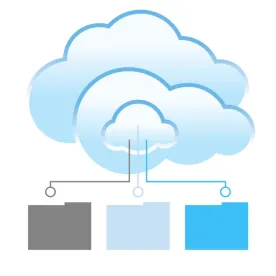What is the Cloud? The “Cloud” simply refers to a computing environment that can be accessed remotely and on-demand. This means that application or data hosting is taking place outside of a business’ internal network or system and can be accessed by many simultaneously.
Benefits to the Cloud. Cloud computing can provide businesses with substantial storage capacity for information like payroll, client files, data and documents. Cloud systems offer broad network access, user self-service, and elastic scalability for users. They can also reduce the cost of IT equipment and management, the amount of necessary hardware, and power consumption.
Risks with the Cloud. The biggest risk of outsourcing your data, information or files to the cloud is the security of stored information. Cloud users face both virtual and physical threats to their data. Any form of unauthorized access can result in massive data loss, system failure, business interruption, and harm to professional reputations of both the user and cloud provider. When sensitive or regulated information is involved, security around the information becomes tantamount as a data breach could trigger both Federal and state laws. Less common, but equally serious risks include the insolvency of a cloud provider, changes in regulatory compliance requirements, and even cyber extortion.
Assessing the Need. While these risks may never be completely eliminated, risk mitigation protocols can make cloud use viable for most businesses. When due diligence and best practices are used to integrate cloud technology into the workplace, cloud storage can offer more security than many other options.




 />i
/>i
